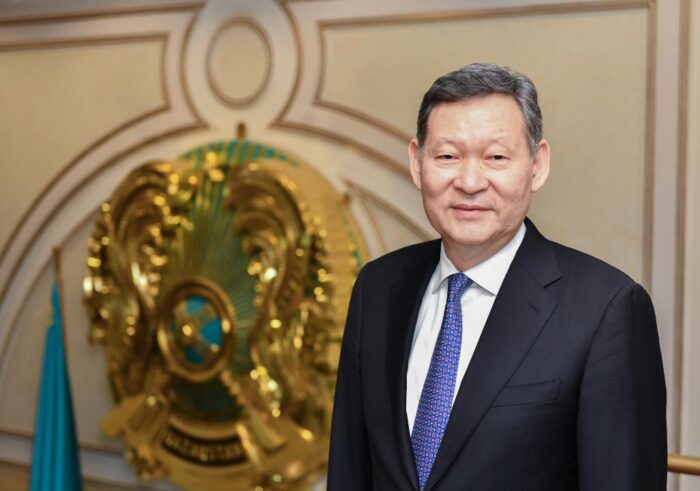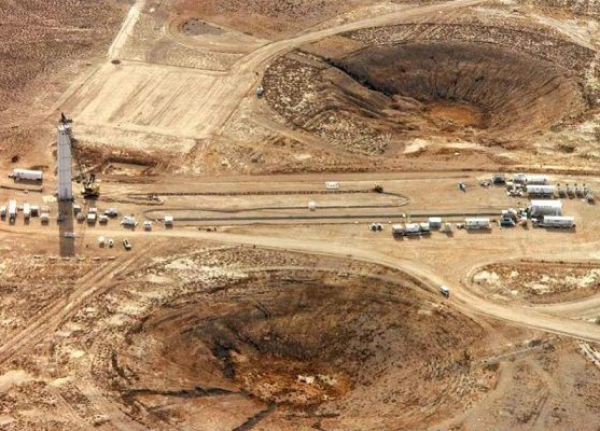In December 2022, Kazakhstan commemorates the 25th anniversary of the adoption of the UN General Assembly’s resolution on international cooperation and coordination for the human and ecological rehabilitation and economic development of the Semei Region, adopted on Dec. 16, 1997, at the 52nd UNGA session.

This resolution serves as a legal basis for mobilizing international support to rehabilitate the aftermath of negative destruction caused by tests conducted at the Semipalatinsk Nuclear Test Site, the largest former Soviet nuclear test site.
It emphasizes the important role of the government of Kazakhstan in allocating the necessary resources to meet the region’s needs. Some 118 UN member states co-authored the most recent resolution adopted in December 2020 (A/RES/75/210), which was the tenth adopted by the UN General Assembly. Between 1997 and 2017 the General Assembly adopted nine resolutions: 52/169 M, 53/1 H, 55/44, 57/101, 60/216, 63/279, 66/193, 69/209 and 72/213) calling for support to enhance the country’s measures in improving the social, economic and environmental situation in the Semei region.
These actions by the UN member states in the General Assembly demonstrate international support for Kazakhstan’s concerns about long-term devastating consequences of nuclear testing.
Between 1949 and 1989, total 456 nuclear explosions were conducted at the Semipalatinsk nuclear test site that served as the primary testing ground of the Soviet nuclear arsenal. The total energy released by one explosion was equivalent to nearly 2,500 Hiroshima atomic bombs.
In 1989 the first anti-nuclear movement emerged in Kazakhstan, known as Nevada-Semipalatinsk, which contributed to the end of nuclear arms tests at the Semipalatinsk site. The last nuclear test took place on Oct. 19, 1989. On Aug. 29, 1991, Kazakhstan’s First President Nursultan Nazarbayev signed a decree on closing the test site, which provided further accelerated momentum for the country’s consistent and robust advocacy for nuclear non-proliferation and disarmament.
In December 2009, at the initiative of Kazakhstan the UN General Assembly designated Aug. 29 as the International Day against Nuclear Tests.

The Semipalatinsk nuclear test site. Photo credit: Inbusiness.kz.
The population that lived in the nearby area still suffers till this day from the consequences of testing. It is estimated that around 1 million people have been adversely affected by the nuclear explosions.
The closure of the Semipalatinsk nuclear test site in 1991 was one of the actions that paved the way for the adoption of the Comprehensive Nuclear-Test-Ban Treaty – a key instrument of the global disarmament and non-proliferation regime. The majority of UN member states are called upon to exert every effort to bring the CTBT into force to end nuclear weapons testing once and for all. To this end, Kazakhstan joins an overwhelming majority of Member States in urging the remaining Annex II States to ratify the Treaty without delay. The international community owes this collective action to the memory of tens of thousands of victims of the use of nuclear weapons in Hiroshima and Nagasaki. The world also should recall the haunting tragedies and suffering caused by several decades of nuclear weapons testing in the South Pacific, North Africa, North America, Central Asia and other regions.
The Treaty on the Prohibition of Nuclear Weapons (TPNW) entered into force in 2021 and is the latest multilateral disarmament instrument adopted in the past 25 years. Supported by 122 United Nations Member States, it strengthens our collective hope for a world free of nuclear weapons. Kazakhstan’s support for the TPNW is based on the unwavering belief in the Treaty’s profoundly positive role as a new step on the path towards the complete elimination of nuclear weapons. Kazakhstan fully shares the notion that the establishment of a legally binding prohibition on nuclear weapons, as embodied in the TPNW, constitutes a fundamental step towards the irreversible and verifiable elimination of nuclear weapons. Kazakhstan, as President-designate of the Third meeting, actively works in the “troika” format with Austria and Mexico – Presidents of First and Second meetings of States Parties, respectively, to strengthen the Treaty’s implementation process.
Kazakhstan, as a country that has directly suffered from the tragic consequences of nuclear testing, is honored to have been entrusted, jointly with Kiribati, the co-chairing of the working group on positive obligations on victim assistance, environmental remediation, international cooperation, and assistance under Article 6 and 7 of the TPNW. These first of their kind articles are designed to address the human and environmental effects of nuclear weapons use and testing as well as the ongoing and expected future harm from the resulting contamination. Kazakhstan has been elaborating other proposals to establish an International Trust Fund for purposes of victim assistance.
The Government of Kazakhstan, with the assistance of donors and direct involvement of UN agencies, has executed a considerable number of remedial measures in the Semei region over the past 25 years. Several projects in the socio-economic sphere, especially, in the areas of environment, public health and education, have been implemented. Our country remains ready to work with all interested parties to further advance the humanitarian objectives of victim assistance in all affected regions of the planet.
By denouncing nuclear weapons, Kazakhstan has convincingly demonstrated that the quintessence of security does not lie in nuclear weapons but in a peaceful foreign policy, internal stability, and sustainable politico-economic development. By showing the world an example of the voluntary renunciation of nuclear weapons and full disarmament, Kazakhstan continues to be an active contributor to the global process of nuclear disarmament and non-proliferation.
From the standpoint of political realism, it is necessary to recognize that the solution to key threats to global nuclear security cannot be separated from the general process of transformation of the modern world order.
The world is falling prey to a new set of military conflicts.
As President of Kazakhstan Kassym-Jomart Tokayev noted in his speech during the high-level week of the 77th session of the UN General Assembly, “for the first time in two generations, we face the prospect of the use of nuclear weapons, and not even as a last resort.
Kazakhstan has suffered terribly from past nuclear weapons testing, so we understand very clearly the dangers of escalating tensions between nuclear powers.
For this reason, nuclear disarmament has become a key part of Kazakh foreign policy and we will be continuously struggling for a world free of nuclear arsenals.
Elaborating new mechanisms to ensure disarmament and nonproliferation is a daunting task ahead.”
Today, humanity has a unique chance to get away from the endless brink of nuclear collapse.
And for that, taking into account the 25th Anniversary of the adoption of the UN General Assembly’s resolution on rehabilitation of the Semei region, more than ever, it is critical to bring together all the nations, as well as, people of good will to work toward the goal of abolition of nuclear weapons.
The author is Kairat Umarov, the First Deputy Minister of Foreign Affairs of Kazakhstan.

